Refine listing
Actions for selected content:
2333 results in Cambridge Elements
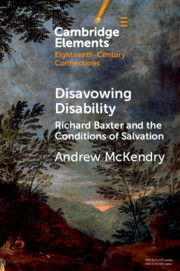
Disavowing Disability
- Richard Baxter and the Conditions of Salvation
-
- Published online:
- 10 July 2021
- Print publication:
- 26 August 2021
-
- Element
-
- You have access
- Open access
- HTML
- Export citation
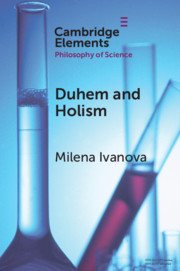
Duhem and Holism
-
- Published online:
- 06 July 2021
- Print publication:
- 29 July 2021
-
- Element
- Export citation
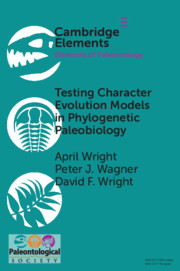
Testing Character Evolution Models in Phylogenetic Paleobiology
- A case study with Cambrian echinoderms
-
- Published online:
- 01 July 2021
- Print publication:
- 26 August 2021
-
- Element
- Export citation
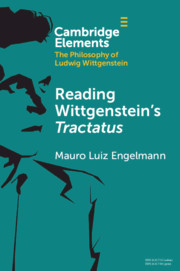
Reading Wittgenstein's Tractatus
-
- Published online:
- 29 June 2021
- Print publication:
- 29 July 2021
-
- Element
- Export citation
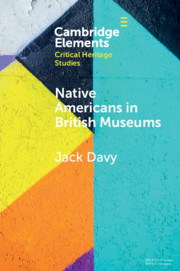
Native Americans in British Museums
- Living Histories
-
- Published online:
- 28 June 2021
- Print publication:
- 22 July 2021
-
- Element
- Export citation

Philosophy of Psychiatry
-
- Published online:
- 26 June 2021
- Print publication:
- 22 July 2021
-
- Element
- Export citation

The War on Witchcraft
- Andrew Dickson White, George Lincoln Burr, and the Origins of Witchcraft Historiography
-
- Published online:
- 24 June 2021
- Print publication:
- 22 July 2021
-
- Element
- Export citation

Real Estate and Global Urban History
-
- Published online:
- 19 June 2021
- Print publication:
- 26 August 2021
-
- Element
- Export citation
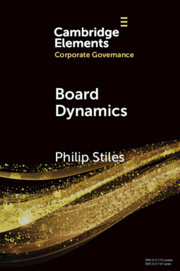
Board Dynamics
-
- Published online:
- 18 June 2021
- Print publication:
- 12 August 2021
-
- Element
- Export citation
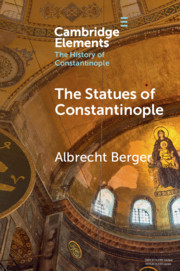
The Statues of Constantinople
-
- Published online:
- 18 June 2021
- Print publication:
- 15 July 2021
-
- Element
- Export citation
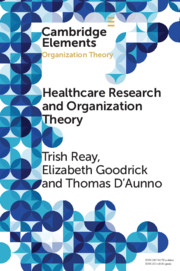
Health Care Research and Organization Theory
-
- Published online:
- 18 June 2021
- Print publication:
- 26 August 2021
-
- Element
- Export citation
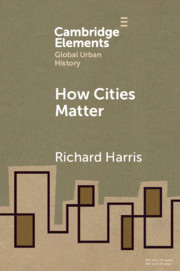
How Cities Matter
-
- Published online:
- 17 June 2021
- Print publication:
- 12 August 2021
-
- Element
- Export citation
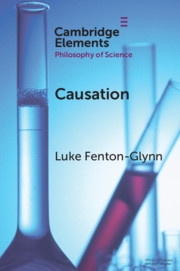
Causation
-
- Published online:
- 16 June 2021
- Print publication:
- 15 July 2021
-
- Element
- Export citation
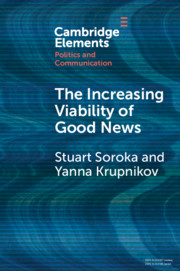
The Increasing Viability of Good News
-
- Published online:
- 15 June 2021
- Print publication:
- 12 August 2021
-
- Element
- Export citation
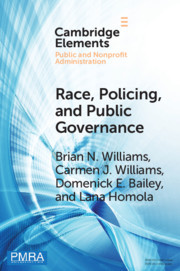
Race, Policing, and Public Governance
- On the Other Side of Now
-
- Published online:
- 04 June 2021
- Print publication:
- 01 July 2021
-
- Element
- Export citation
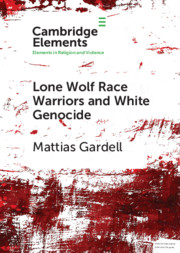
Lone Wolf Race Warriors and White Genocide
-
- Published online:
- 04 June 2021
- Print publication:
- 01 July 2021
-
- Element
- Export citation
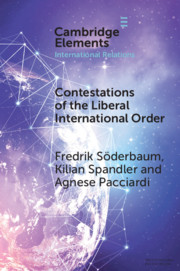
Contestations of the Liberal International Order
- A Populist Script of Regional Cooperation
-
- Published online:
- 31 May 2021
- Print publication:
- 23 September 2021
-
- Element
- Export citation
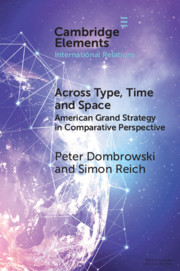
Across Type, Time and Space
- American Grand Strategy in Comparative Perspective
-
- Published online:
- 29 May 2021
- Print publication:
- 12 August 2021
-
- Element
- Export citation
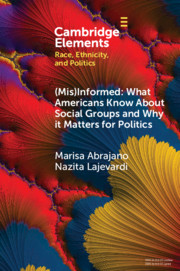
(Mis)Informed: What Americans Know About Social Groups and Why it Matters for Politics
-
- Published online:
- 26 May 2021
- Print publication:
- 24 June 2021
-
- Element
- Export citation
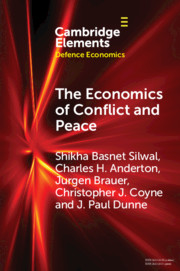
The Economics of Conflict and Peace
- History and Applications
-
- Published online:
- 26 May 2021
- Print publication:
- 24 June 2021
-
- Element
- Export citation
